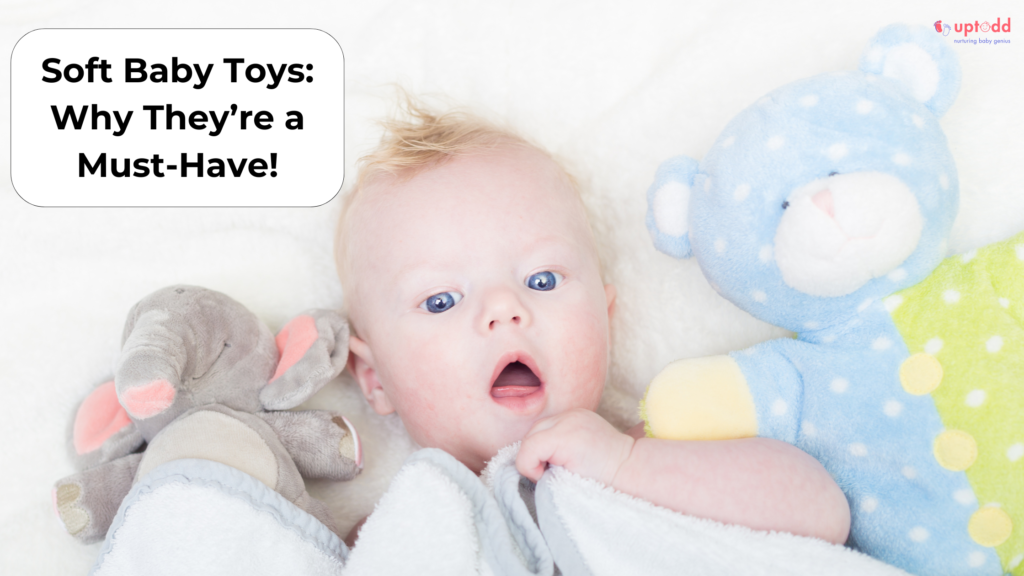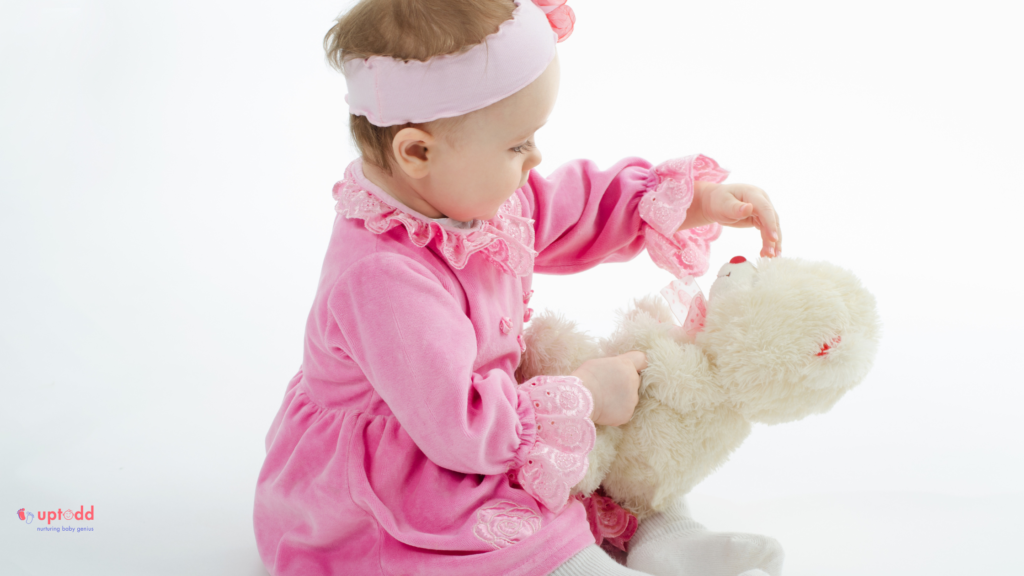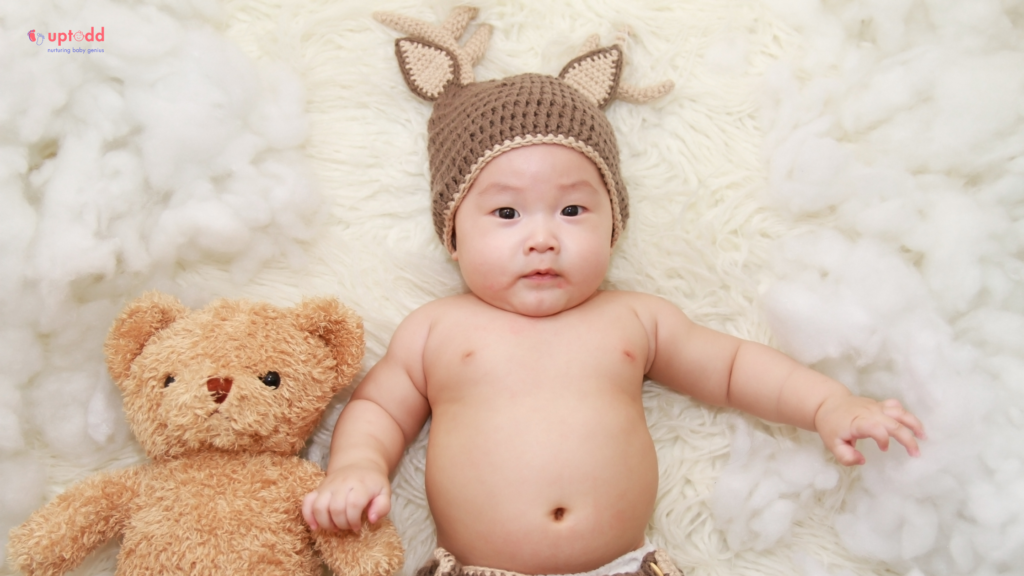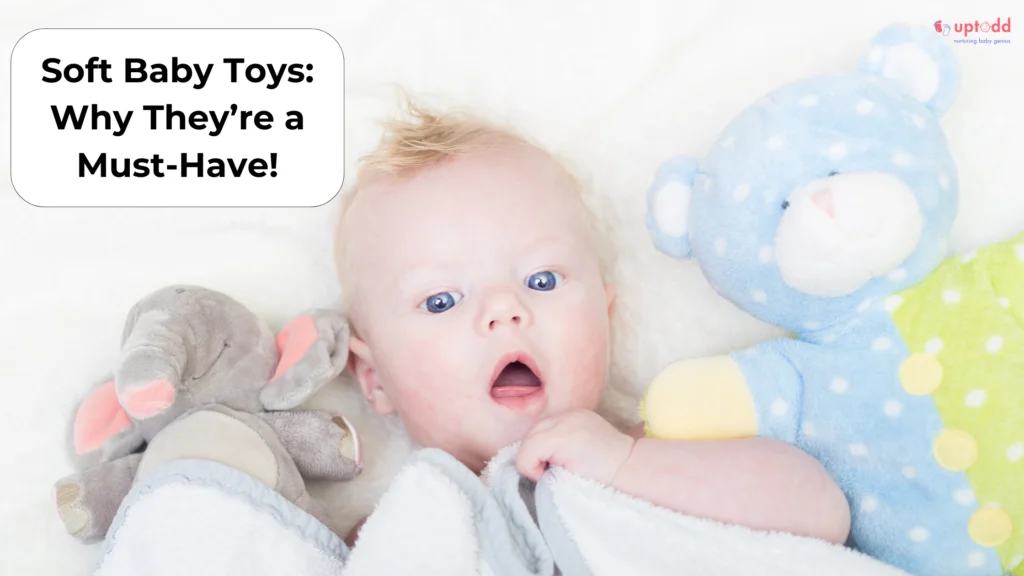
Soft baby toys hold a special place in our lives. These cuddly soft friends aren’t just adorable, but they play a big role in your baby’s development and comfort. Their squishy soft textures make them extremely huggable, becoming a source of emotional comfort, a tool for learning, and sometimes, your baby’s very first best friend.
In this blog, we will explore
Why Are Soft baby Toys Important?

Soft baby toys are more than adorable playthings; they are companions and learning aids rolled into one. Here’s how they contribute to a baby’s development:
1. Sensory Exploration
Soft toys provide babies with great opportunities for discovering various textures, shapes, and colors. Through these interactions, babies learn to distinguish between different materials and sounds, building essential sensory processing skills that support their development. This interaction can be an important process of neural development that further constructs sensory processing skills in the baby.
2. Emotional Comfort
Soft toys provide comfort to your baby in many ways. They can soothe a crying baby, offer familiarity in new environments, and even be his or her first friend. The emotional attachment builds security and trust. The greatest benefit of stuffed toys is that they provide comfort and security. From birth, infants will seek warmth and reassurance, in large part from soft, cuddly items. That attachment can go a long way toward a child’s emotional development.
Familiar stuffed animals and blankets serve to bring comfort in a stressful situation and help your baby feel secure and safe. Such comfort will act as an anti-anxiety, thereby fostering a calm and peaceful atmosphere conducive to baby’s emotional health.
Cuddly toys develop a child’s imagination for creative play. Children can weave their plots and situations, envisioning their plush toys as friends or characters from a different world.
Many parents find plush toys to be effective sleep aids for babies struggling to adjust to sleeping independently. The soft, cuddly texture of these toys provides a sense of physical comfort, helping babies feel secure and calm. Having a plush companion nearby can encourage self-soothing, making it easier for little ones to drift off to sleep without relying on constant parental presence.
3. Cognitive Growth
These toys encourage problem-solving and teach cause-and-effect relationships. For instance, introduce a squeaky plush toy and with its help, your little one will understand his action can trigger a response that is a squeaky noise. Soft toys are highly imaginative and creative tools that engage little ones before the minds of imagination. They help babies engage in pretend play, as they use their soft toys to act out different scenarios. Such play is very important in developing cognitive skills that enhance creativity, imagination, problem-solving skills, storytelling, and independent abstract thinking.
For example, a very simple stuffed animal might become a brave adventurer, a caring friend, or even a magical creature in the imagination of your baby. Such imaginative experiences develop critical thinking in the development of curiosity and creativity in your baby.
4. Social Skills
Soft baby toys are the favorite play partners in pretend games where babies play a nurturing role, feeding their teddy bear or engaging in a conversation with their doll, imitating the actions that they see grown-ups doing in real life. Such role-play activities help build empathy and social relations, as well as early communication skills, both verbal and non-verbal.
A study revealed that many babies learned to express themselves by playing with soft toys, which served as a means of enhancing social cues. Talk to your baby throughout the role-play activity. Name the soft toys, describe their actions, and make certain scenarios and stories. This also helps with the development of language skills through vocabulary expansion.
Sharing soft toys with siblings or friends also builds social competence through learning valuable lessons about friendship and cooperation.
5. Physical Development
Soft toys are absolutely wonderful for encouraging physical development in babies. Grasping or squeezing a toy and transferring it from one hand to the other greatly strengthens the little muscles in their smaller hands and fingers, developing fine motor skills. Playing with these plush toys also encourages hand-eye coordination, and builds dexterity for future skills like writing and self-feeding.
Along with developing fine motor skills, larger soft toys can also support gross motor development as your little one crawls, reaches, or even takes their first steps in order to grab or carry them. Activities such as picking up, shaking, or throwing soft toys also strengthen other muscle groups, supporting a baby’s overall physical growth and coordination.
BENEFITS OF SOFT Baby TOYS

Comfort and Emotional Development
Soft toys often become a baby’s first friends, bringing comfort and companionship. Babies often talk to their toys, hug them, or even share their food with them, helping them explore and understand emotions and relationships. These interactions nurture empathy and compassion and develop the foundation for emotional intelligence.
Soft toys can provide comfort to babies, especially when they are feeling upset or need to sleep. They also allow children to explore a range of emotions—happiness, anger, sadness, fear, and even jealousy—in a safe and imaginative way, aiding emotional expression and regulation.
Sensory development
Soft toys become a sensory treat for babies, with a myriad of textures to stimulate their touch. Smooth and silky surfaces, fluffy and bumpy textures- toys have their various textures with which the baby is introduced to the world of tactile differences. Tactile sensations help babies learn to distinguish hard from soft or rough from smooth. Brightly colored soft toys engage their visual senses, helping them recognize and differentiate hues with the additional auditory dimension provided by selected toys that make sounds during playtime.
Social Development
Soft toys can be instrumental in building social skills, as infants interact with them and with others during play. Pretend scenarios, such as “feeding” a stuffed animal or making it “talk,” mimic real-world interactions and allow babies to practice empathy and cooperation. In addition, if soft toys are shared with siblings or peers during play, valuable lessons in sharing, negotiation, and collaboration are taught. These early social encounters form a fertile ground for the building of meaningful relationships.
Language Development
Soft toys also aid in language development by encouraging babies to name and describe their toys or use imaginative dialogue. Talking about plush companions or role-playing scenarios encourages vocabulary growth while honing their communication skills. Other parent-facilitated activities might include narrating the baby’s actions or creating stories around soft toys, making playtime part of a language development system.
Cognitive Development
Engaging with soft toys allows healthy cognitive development that promotes exploration of cause-and-effect relationship. For instance, for babies, squeezing a squeaky toy or shaking a rattle helps them understand the effects of their actions. Soft toys also nurture creativity, as children imagine them as characters in their own narratives. This type of imaginative play fosters problem-solving, storytelling, and abstract thinking, essential for cognitive development.
Conclusion
Soft toys are timeless treasures and an adorable addition to your baby’s room and playtime. They serve as your little one’s first friend, and fluffy source of comfort. These little wonders are an essential part of your baby’s journey through early development. From developing creativity and social skills to providing comfort and emotional security, these plush treasures play a significant role in shaping your little one’s play world, building memories and happy moments.




Leave a Reply